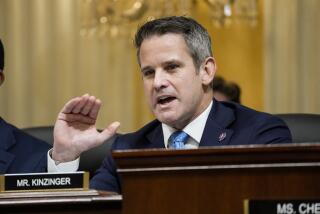Soviets Hopeful of Afghan Pullout in ’88
- Share via
MOSCOW — The Soviet Union hopes to withdraw its troops from Afghanistan this year, and the necessary “conditions can be ensured shortly” for the pullout to begin, Foreign Minister Eduard A. Shevardnadze was quoted as saying Wednesday.
“We would like 1988 to be the last year of the presence of Soviet troops in your country,” Shevardnadze told the Afghan news agency Bakhtar. An account of the interview was carried by the official Soviet news agency Tass.
Asked if it is possible to withdraw Soviet forces in 1988, Shevardnadze replied: “Having discussed this question with (Afghan) President Najibullah, we have arrived at the conclusion that the necessary conditions can be ensured shortly.
“In other words, we believe the conditions for a political settlement of external aspects of the Afghan problem will be ensured.”
Shevardnadze also said that the United States has agreed to stop sending military aid to rebel groups in return for a withdrawal of Soviet forces, Tass said.
The report, which seemed to confirm speculation that the United States and the Soviet Union reached an agreement to end the eight-year Afghanistan war at last month’s superpower summit in Washington, came as Shevardnadze concluded a three-day Kabul visit for talks with Najibullah and returned to Moscow.
Shevardnadze said the key element in the withdrawal is the long-running, indirect peace negotiations conducted in Geneva by Diego Cordovez, an aide to U.N. Secretary General Javier Perez de Cuellar. Shevardnadze said the talks, between Afghanistan and Pakistan, are nearing agreement on virtually all points and may be concluded next month.
Pullout 60 Days Later
Under the scenario outlined by Shevardnadze, the withdrawal of an estimated 115,000 Soviet troops would begin 60 days after Afghanistan and Pakistan sign an agreement to end the fighting and to resettle an estimated 4 million Afghan refugees living in Pakistan.
“We shall leave Afghanistan with a clear conscience and an awareness of duty fulfilled when outside interference is stopped,” Shevardnadze said. “We have complete understanding with the Afghan leadership to this effect.”
If conditions are favorable, Shevardnadze said, the Soviet troop withdrawal can be concluded before the end of the year. He said troops would be pulled out early from Afghan provinces where a cease-fire has been achieved and conditions are stable.
Once an agreement has been signed at Geneva, the foreign minister added, all sides will have an obligation to stop outside interference in Afghanistan’s affairs.
“Under the documents prepared, the Soviet Union and the United States will be guarantors of that obligation,” he said.
“It must be emphasized that the U.S. side agrees to be a guarantor and, consequently, to stop aid to armed groups conducting military operations against the people’s power in Afghanistan,” Tass quoted Shevardnadze as saying.
U.S. military equipment, including Stinger anti-aircraft missiles, has been a key element in the success of the guerrillas.
The Soviet Union intervened in Afghanistan in the closing days of 1979 and installed a pro-Moscow Afghan leader, Babrak Karmal. In May, 1986, Karmal was replaced by Najibullah.
More to Read
Sign up for Essential California
The most important California stories and recommendations in your inbox every morning.
You may occasionally receive promotional content from the Los Angeles Times.













